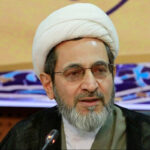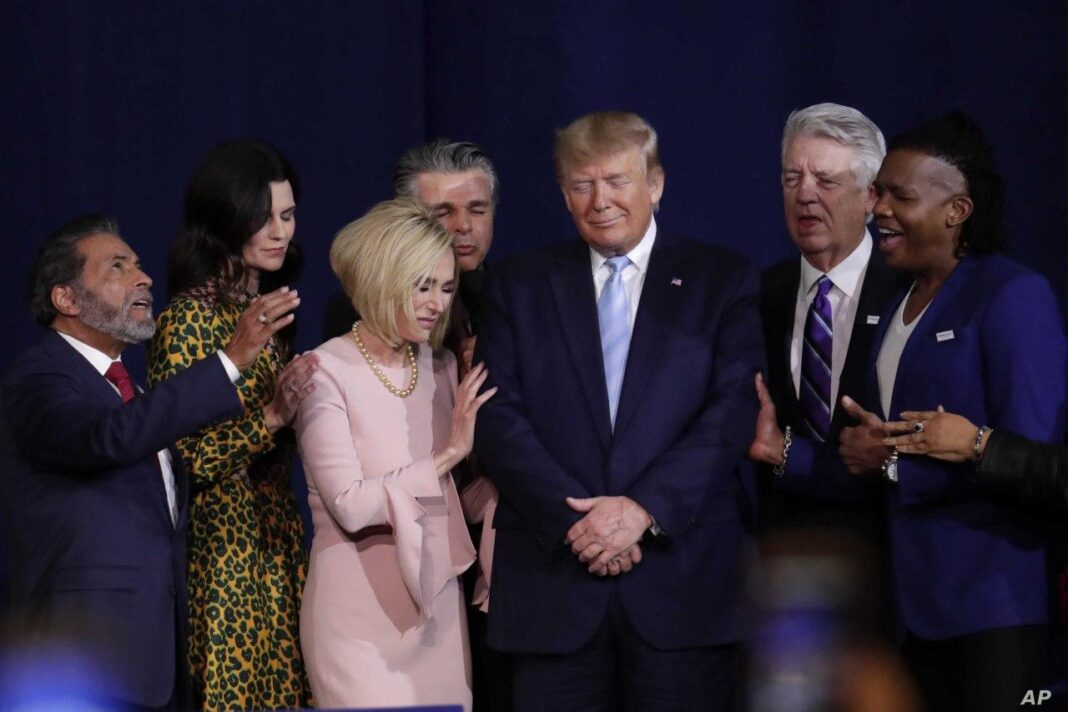Born in 1953, Masjed-Jamei is a religion scholar and researcher, with a special focus on Christianity. A former ambassador of the Islamic Republic of Iran to Vatican and Morocco, Masjed-Jamei has authored several books including “Christians and the New Era”, which deals with the geopolitics of modern Christianity in the contemporary era.
A PhD graduate in geopolitics from the University of Pisa in Italy,

has taught at the University of Religions and Denominations of Qom as well as the Iranian Foreign Ministry’s School of International Relations.
In a detailed interview with Iranian news website Khabar Online, Masjed-Jamei has weighed on the impact of evangelical Christianity on the US politics and the country’s foreign policy, especially since President Donald Trump assumed office.
An English version of the interview, originally conducted in Persian, is published by IFP News in several parts.
The first part mainly focused on the impact of evangelical Christianity on Trump’s relations with Iran.
The second part mainly concerned the US government’s use of religion to prop up its regional ally Israel.
What follows is the third part of the interview, which mainly deals with the way evangelicals stepped into the realm of politics in the US, and why they seem to like Trump so much.
How did evangelicals in the US turn political?
They had been present in the US history since the 19th century, and continued to maintain their presence. At the time of Reagan’s presidency, the US federal government tried, for the first time, to get close to them and capitalize on their influence and presence in favour of its own foreign policy.
Was it because of Reagan’s good features?
Yes, because Reagan himself was an advocate of the Evangelical Church. For instance, during his first election campaign in a speech in summer 1980 addressing a huge gathering of evangelicals in the US state of Texas, Reagan said he knew that they (evangelicals) could not endorse him, but that he endorsed them and whatever they did. His words were met with an applause and great excitement from the crowd.
If Reagan was an evangelical himself, then why couldn’t they endorse him?
Probably that was just a pleasantry. Reagan was an expert in making such comments, and that is why he was popular in the US society. Of course, Reagan was not as devout an evangelical as are Mike Pence and Mike Pompeo now. Nevertheless, he was popular among evangelicals at the time and still is, and so is Trump. Although he is popular among evangelicals, he is not like those two. One can say that his popularity is not because he and evangelicals have common ground on the religious front; rather, it is because they share the same mentality, i.e. the same personality and political traits. In layman’s terms, this means they like Trump.
Is it because Trump is at their service?
Yes. Sometimes you are interested in a person because he or she shares the same religion and beliefs as you. However, sometimes you like that person because he or she serves to promote your objectives and programs. Take Pence, for example! Probably few vice presidents in the modern US history have been so obedient to their masters. He is not only obedient, but is loyal to Trump and, in one sense, feels inferior to him. From Trump’s perspective, Pence is an ideal individual. Pompeo is like Pence, too. As the US secretary of state, Pompeo is at the service of Trump’s ideas. Moreover, Pence strictly abides by Christian ethics and has never had a meeting with a woman in a closed space like his mentor Billy Graham, who was a very famous priest. Pompeo is probably like Pence, too.
Don’t you think that the story may be the other way round? I mean they, especially Pence, who seems smarter, only pretend to be obedient only because they want to take advantage of Trump? Otherwise, Trump, who is notorious worldwide for his immoral acts and behaviour, is not someone that Pence and Pompeo would like to look up to as a mentor?
No, that’s not the case. There is a religious saying which indicates that one of the practices of God Almighty is that he sometimes confirms his religion through wicked people and sinners. Pence and Pompeo have the same idea, too. They believe Trump is blessed by God. Trump’s behaviour is not important to them. What is important is that Trump helps advance their ideals. Mark Galli, the former editor-in-chief of Christianity Today, who himself is an evangelical minister and a critic of Trump, has written a critical article named “Trump Should Be Removed from Office” in which he disavowed Trump and said he is an immoral person and his behaviour runs counter to teachings of Christianity. But such evangelicals are in minority. The likes of Pence and the rest of evangelicals are not like that. They feel Trump is a divine blessing to promote evangelicalism as well as their objectives and ideals.
There is no denying that they are “using” Trump, but one can use a person in two ways: Sometimes one uses a person as a tool, but sometimes respects him and regards him highly.
Pence and Pompeo are of the second type. They regard him as someone handpicked by God in order to serve religion, someone destined to promote their religious ideas, no matter if he himself is not a favarouble personality from a religious perspective. They regarded Reagan in the same way.
Anyway, they began to step into the realm of politics at the time of Reagan’s presidency. Reagan, and the US politics in general, encouraged them a lot to make more and more trips to Latin America in order to, in their words, promote their beliefs, and it was very effective, too. The Guatemalan ambassador to the Vatican said they made half of that country’s population evangelical in ten years’ time, i.e., in the 1980s. This is a very arduous and important task.
How was their situation after Reagan?
After Reagan, this current faced ups and downs until Obama took power, which is an important period of time. During Obama’s presidency, evangelicals were annoyed very much. Obama was a favourable personality neither for evangelicals nor for American rightist nationalists, two spectrums which are usually mixed with one another.
For instance, in 2010, this very Mike Pompeo posted a tweet during his election campaign to become a lawmaker – and, of course, removed it very soon. In that tweet, he described President Obama with words like “usurper”, “wicked”, “communist” and “Muslim.” Well, it is unacceptable to talk about the then US president using such language. This is his mentality.
President Obama made them very coherent. If anyone other than Obama had become President, they would definitely not have become so much coherent. Therefore, a feeling of concern over the presence of Obama triggered a series of reactions that led to the election of Trump. When Trump launched his election campaign, they got so much provoked and came onto the scene to bring Trump to Presidency.
